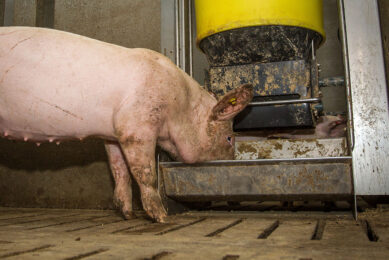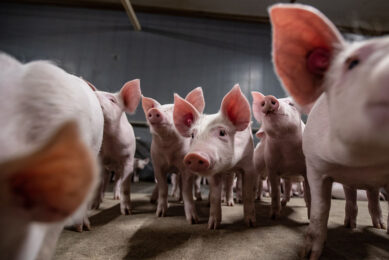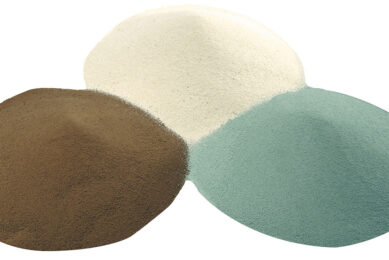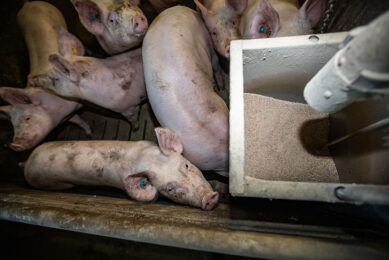Effect of organic and inorganic selenium on post-weaning pigs
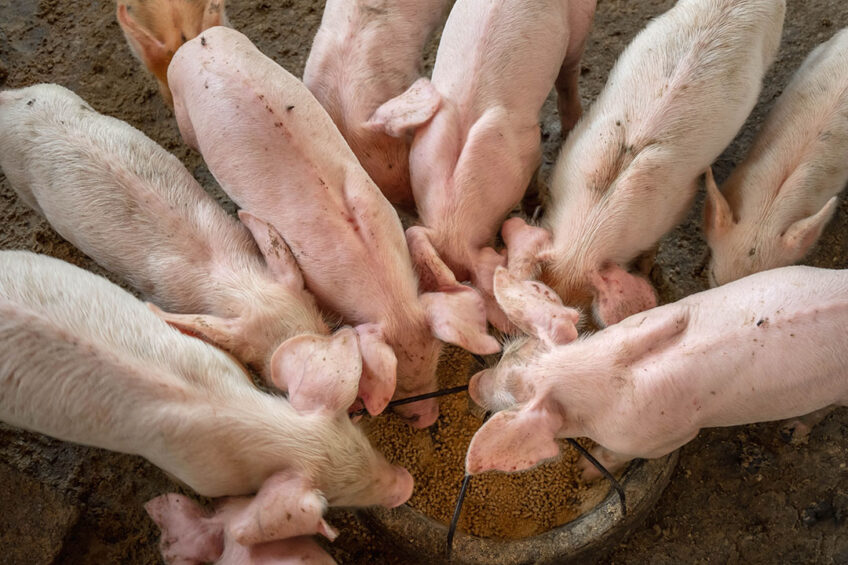
Researchers from the University College Dublin and the Monaghan Mushroom Group, Ireland evaluated the effects of mushroom powder enriched with inorganic selenium and mushroom powder enriched with organic selenium on growth performance and gut health of post-weaning pigs.
Weaning comprises dietary, social, and environmental stressors. These result in a reduced feed intake, and gut morphological and functional changes. It also leads to lower nutrient absorption, reduced energy availability, gut inflammation, dysbiosis and post-weaning diarrhoea.
It is therefore necessary to identify natural bioactive compounds to support growth performance, enhance beneficial microbial populations, and prevent diarrhea. Selenium is an essential trace nutrient promoting immune function and growth performance with bacterial-modulating activities. Mushrooms are a rich natural source of bioactive compounds with anti-inflammatory, antioxidant and immunomodulatory properties improving growth performance.
Data collection
The researchers selected 96 pigs (48 male and 48 female) at weaning. They supplemented the pigs’ diets with one of the following feed additives:
- zinc oxide;
- mushroom powder enriched with inorganic selenium;
- mushroom powder enriched with organic selenium.
The team calculated body weight, average daily gain, average daily feed intake, and gain to feed ratio on a per-pen basis. They assessed faecal scores (1 = hard, 2 = slightly soft, 3 = soft, partially formed, 4 = loose, semi-liquid, 5 = watery, mucous like) to indicate the presence and severity of diarrhea. The researchers took tissue samples from the duodenum, jejunum, and ileum to analyse gut morphology. They also measured the expression of cytokines, nutrient transporters, mucins, tight junctions, and appetite regulators using quantitative real-time PCR.
They used gas liquid chromatography to determine the volatile fatty acid concentrations in the cecal digesta. The research team extracted microbial DNA and the total RNA from duodenal and ileal tissues. They also measured the quantity and quality of the DNA and RNA. They used standard paraffin embedding techniques to prepare the gut tissue for morphological analysis including villus height, crypt depth, and villus height to crypt depth ratio measurements.
In addition, supplementing mushroom powder enriched with organic selenium was superior to mushroom powder enriched with inorganic selenium in supporting gut health through improving faecal score
Impact on performance and faecal consistency
Feeding mushroom powder enriched with organic selenium decreased the average daily feed intake. Pigs supplemented with zinc oxide had more fecal consistency. In addition, supplementing mushroom powder enriched with organic selenium was superior to mushroom powder enriched with inorganic selenium in supporting gut health through improving faecal score.
Impact on volatile fatty acids
Mushroom powder enriched with organic selenium and mushroom powder enriched with inorganic selenium decreased the concentration of volatile fatty acids and the concentration of isovalerate compared to the control group.
Impact on the caecal microbiota
Mushroom powder enriched with organic selenium and mushroom powder enriched with inorganic selenium increased the relative abundance of Bacteriodetes and Prevotellaceae. They decreased the relative abundance of Sporobacter and Ruminococcus.
Mushroom powder enriched with organic selenium and mushroom powder enriched with inorganic selenium decreased the concentration of volatile fatty acids
Dietary supplementation with mushroom powder enriched with organic selenium increased the relative abundance of Lactobacillus within the family Lactobacillaceae, Agathobacter within the family Lachnospiraceae, and Roseburia within the family Lachnospiraceae. It decreased the relative abundance of Ruminococcaceae.
Supplementing mushroom powder enriched with organic selenium was superior to mushroom powder enriched with inorganic selenium in terms of developing healthier cecal microbiome composition such as Lactobacillus which produces antimicrobial peptides and enhances immune function.
Impact on gene expression
Supplementation mushroom powder enriched with inorganic selenium increased the gene expression of TLR4 and IL10 leading to the production of proinflammatory cytokines and the gene expression of IL17 which has implications in the pathogenesis of chronic disease. Supplementation mushroom powder enriched with organic selenium indicated a potential immunomodulatory effect by decreasing the expression of proinflammatory cytokine gene IL6.
Gut morphology
Feeding mushroom powder enriched with inorganic selenium decreased villus height, and villus height to crypt depth ratio in the jejunum. It also decreased villus height in the ileum.
Organic selenium more effective
In conclusion, supplementing mushroom powder enriched with organic selenium was more effective than mushroom powder enriched with inorganic selenium at improving gut health and modulating cecal microbiota of post-weaning pigs due to lower toxicity and higher bioavailability of organic sources of selenium.



